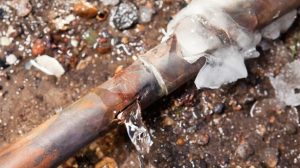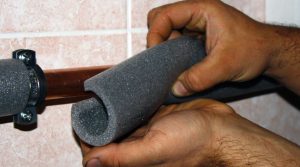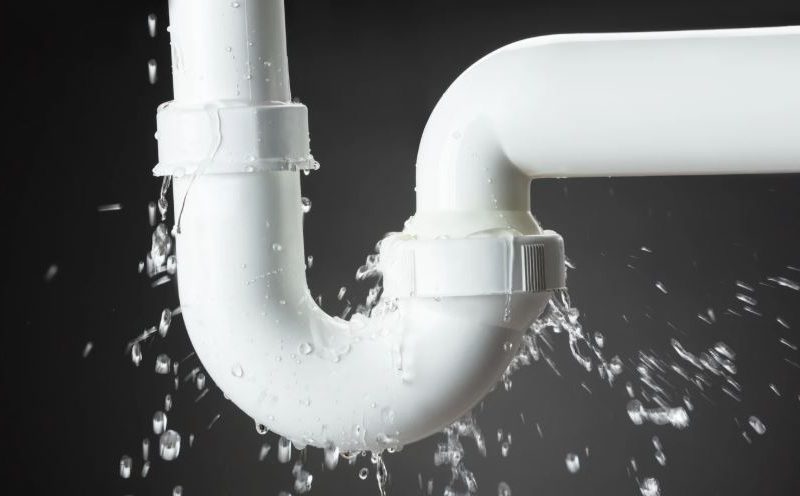As winter approaches and temperatures start to drop, it’s time to take some common-sense precautions to protect your home. Preventative maintenance is crucial at this time of year, especially when it comes to protecting pipes and plumbing.
Frozen pipes are every home and business owner’s worst nightmare. It can lead to all sorts of problems, including flooding, damage to property and expensive repair bills.
But with a few simple steps, you can prepare for winter and reduce the chances of your pipes freezing or bursting.
What Happens When Pipes Freeze?

Before you can take preventative steps to prevent your pipes from freezing, it’s important to understand why and how it happens in the first place. Plus, what damage it can cause when pipes burst.
Pipes freeze when exposed to cold temperatures, so it’s common for uninsulated pipes in unheated areas like garages and lofts – and on exterior walls.
When the water in a pipe freezes, it expands as it turns to ice. This blocks the pipe, stopping water from flowing. It also puts a huge amount of pressure on the pipe from inside, causing it to crack and even split, or burst.
The most severe damage typically happens when the ice in the pipe thaws, and water runs out of the cracks. This can cause significant flooding.
How To Stop Pipes from Bursting?
To prevent your pipes from freezing and bursting this winter, follow these steps:
1: Insulate Your Pipes
All pipes that are on exterior walls or in unheated parts of the house need to be covered in pipe lagging. The good news is that this is really cheap to buy and widely available. The lagging will insulate the pipe and prevent water from freezing inside it.
Focus on:
- Outside pipework, including bends, valves, and fittings too
- Outside taps – you can buy special insulated tap covers for these too
- Pipes in unused loft spaces, basements, garages, and outhouses
- Water tanks – the tank and its pipes need to be properly insulated, especially if kept in a cold, unheated space.
2: Get Your Boiler Serviced
An annual boiler service keeps your heating system running efficiently and safely. Just as importantly, it can prevent cold spots in the system, which may be vulnerable to freezing temperatures.
3: Keep Your Home Warm Enough
When it’s cold outside, you need to make sure the inside is warm enough to prevent pipes from freezing. So even if the house is not occupied or you’re away for a few days, make sure your thermostat is set to a minimum of 7°C. Many thermostats have a pre-set Frost Protection feature.
You may also want to look into draught proofing around windows and doors, and letting warm air circulate into unheated spaces. For example, opening the loft hatch or cupboard doors.
4: Fix Leaking Taps
A leak from a tap can potentially cause your drains to freeze, and water to back up into your sink. It’s also just good practice to get dripping or leaking taps dealt with as soon as possible.
5: Turn The Water Off If You’re Going Away
If you’re planning a Christmas or New Year break, it’s a sensible move to turn your water off at the mains before you leave. This means that just in case a pipe freezes or there are any other problems, flooding will be kept to a minimum.
You can even run the taps and drain the system if you want to be extra cautious – just remember to close them again afterwards.
What To Do If Your Pipes Freeze?

If one of your pipes does freeze, here’s what to do:
- Locate your stopcock and immediately turn the water off
- Open all the taps to drain the system as quickly as possible – turn them off again once finished
- Thaw out the pipes gently – you can use hot water bottles or towels soaked in hot water.
If you suspect there’s any damage to a pipe, one has burst, or you’re not confident thawing the pipes yourself, it’s best to call in an emergency plumber right away.









